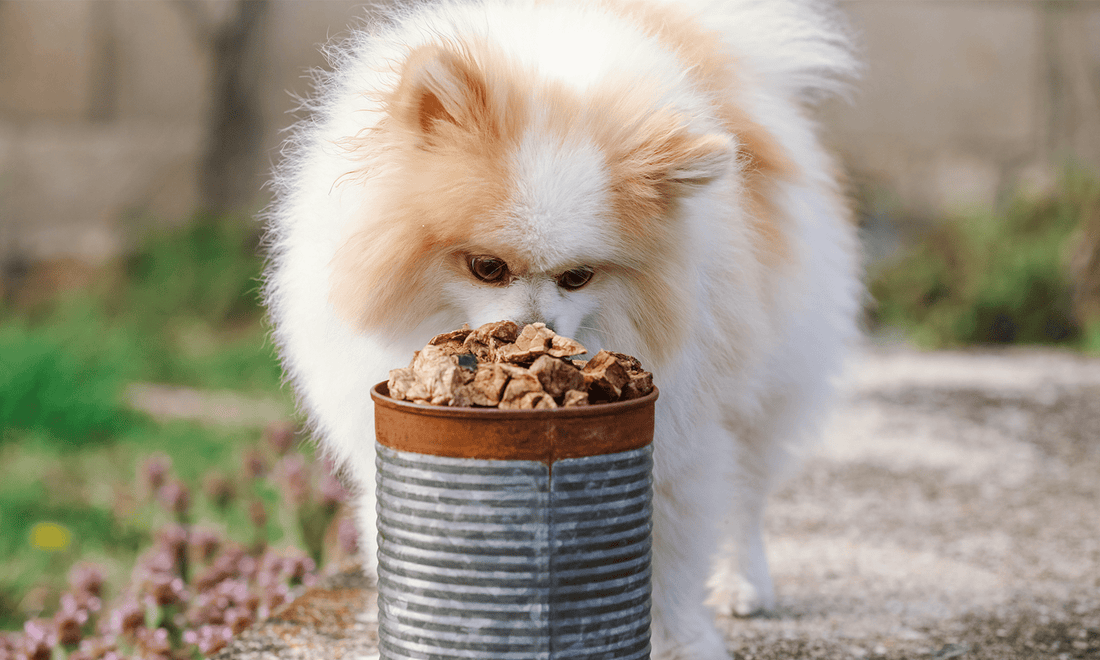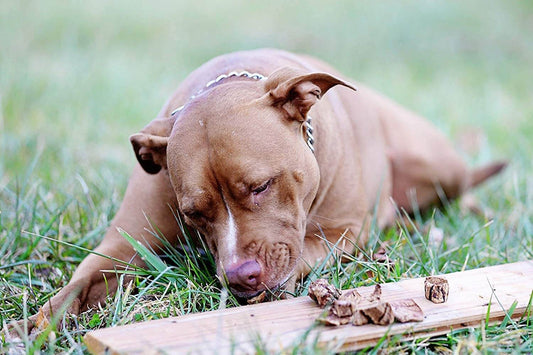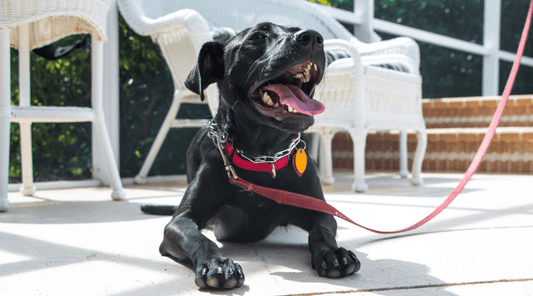Can Dogs Have Collagen? My Dogs Sure Can, and Here’s Why!
Dawn Miller Jul 31, 20245 Minute ReadOne sunny afternoon, I found myself enjoying a leisurely hike with my significant other and our three dogs. The trail was peaceful, and the birds were singing. The dogs were in their element, bounding through the woods—over fallen limbs, a mix of old leaf litter, ferns, and shrubs strewn across uneven ground. And a thought struck me: What keeps my dogs so energetic and nimble? One of the answers is the collagen from their dog bones.
Free Marrow Refill Recipe Guide
Can Dogs Have Collagen?
A resounding yes! Collagen is the most abundant protein in their bodies and mine. Collagen-rich foods like marrow-filled dog bones are a natural part of a dog's diet in the wild. And I want to ensure my dogs have a diet that's as close to the way their distant ancestors ate as possible.
What Is Collagen, Exactly?
It's the main component of skin, bones, tendons, and ligaments. It's what holds everything together and keeps it strong and flexible.
Mammals can produce their own collagen from various amino acids; however, the efficiency of collagen production decreases as we age. This leads to signs of aging in both humans and our furry friends: looser skin, dull hair or coat, stiffer joints, and musculoskeletal pain.
Can Eating Collagen Aid Collagen Production?
That's the real question, isn't it? You might remember from biology class that the body breaks down ALL PROTEINS into amino acids during digestion. If it's broken down, will it increase the collagen in their bodies?
So, I did some more research to find out.
First, when you or your dog consume collagen, you eat the perfect mix of amino acids that mammals use to make collagen. So, the body has the building blocks of collagen right there.
What will the body do with it?
A 2020 Review of collagen research in humans found good evidence that consuming collagen orally has a direct effect on fibroblasts. I think of fibroblasts as little construction workers. These specialized cells build or improve structures like skin, hair, joints, and bones.
Now, human studies don't automatically apply to dogs, so I wasn't satisfied with this answer. I then found this placebo-controlled dog study, where 52 dogs with osteoarthritis were divided into two random groups. One group received collagen for 16 weeks.
They measured agility and pain levels in all dogs before and after treatment. After 16 weeks, they noted objective increases in agility (range of motion) in the collagen group but not the placebo. But even more impressive, after just 4 weeks, they measured a reduction in signs of tenderness/pain in joints when pressure was applied.
Why Collagen for Dogs?
Here's why I'm a big fan of collagen chews for dogs:
- Joint Health: Collagen supports joint health, which is crucial for my active dogs. It helps maintain the integrity of their cartilage, reducing the risk of arthritis and other joint issues as they age.
- Skin and Coat: A healthy dose of collagen can improve your dog's skin elasticity and coat health, making their fur shinier and softer. No, dog hair is not supposed to feel wiry!
- Digestive Health: Collagen can help support a healthy gut lining, which is important for overall digestive health.
Big dogs in particular benefit from collagen because large dogs are more prone to bone and joint problems as they age.
Large dogs need extra large bones that can handle their aggressive chewing.
For example, I choose Meaty Mammoth bones for my big lab mix, Bruno.
What Healthy Treats for Dogs Contain Collagen?
The best source of collagen for dogs is a marrow-filled beef dog bone or beef trachea. You might also try beef lung bites for a quick treat your dog will love.
Each contains collagen plus glucosamine and chondroitin, which are great for bones and joints.
I give my dogs all of them.
How I Incorporate Collagen into My Dogs' Diets
First of all, collagen is an important protein, but it doesn't contain all the essential amino acids needed to make all animal proteins. Collagen is missing tryptophan, which is essential in both dogs and humans. Our bodies can't make it.
To avoid this and other nutritional deficiencies in dogs, most of their diet must consist of veterinarian-approved pet food.
The American Kennel Club recommends that treats be no more than 10% of your dog's diet. A dog bone—even a collagen-rich one—is still a treat.
This amounts to giving them dog bones for 15-20 minutes 2-3 times a week. By spreading it out, you're making it "feel like a treat" and ensuring they don't stop eating their regular food because they expect dog bones instead.
Are There Any Risks?
While collagen dog bones are generally safe for dogs, it's always a good idea to never give your dog a dog bone and then leave them unattended. Even the most durable bones could pose some choking risk, especially if you have an aggressive chewer.
But I've found there are some ways to greatly reduce these risks. Here's my personal checklist
- It's the right type of bone: Beef bones are best. They're durable but not too hard on teeth.
- It's prepared correctly: Dog bones must be cooked low and slow to the right density. I don't trust myself to do this. I can't just give my dogs my bone broth bones. That's not safe. I buy hickory smoked dog bones. The smoking process kills pathogens while retaining the nutrition my dogs need and the tasty meaty bits they want.
- No additives: I'm always looking for single-ingredient healthy treats for dogs. The dog bone is the ONLY ingredient. It's naturally filled with collagen-rich bone marrow.
- Appropriately sized: A dog bone that can fit into a dog's mouth is too small. That's why I like that K9 Connoisseur suggests different bones for each size dog. It has taken the guesswork out of filling my Amazon shopping cart with bones that each of my three dogs can enjoy.
- It's grass-fed: Healthy dog bones are grass-fed beef bones. Grass-fed beef is lower in saturated fat and higher in omega-3 and many nutrients. The same is true for the bones of these cattle.
- Raised in the USA: This is, of course, a personal choice. I choose USA-raised, grass-fed cattle because of the controls in the US. I also like to support local US economies and reduce the transportation emissions produced when buying products from across the pond.
A Happy, Healthy Life with Collagen
As the sun began to set on our hike, casting a warm glow over the trail, I couldn't help but feel grateful for the simple things that contribute to my dogs' happiness and health. These are my furry kids, after all. I want them to stay healthy and active for as long as possible.
Collagen has become a staple in our household, and the benefits it brings are clear. Whether my dogs get their collagen through marrow bone, beef trachea, or beef tendon, I'm confident that collagen is helping them live their best, healthiest lives.
Available On:
Disclosure: This article may contain affiliate links, which means we may earn a small commission if you make a purchase through these links—at no extra cost to you. We only recommend products we trust and believe will benefit you and your K9.






